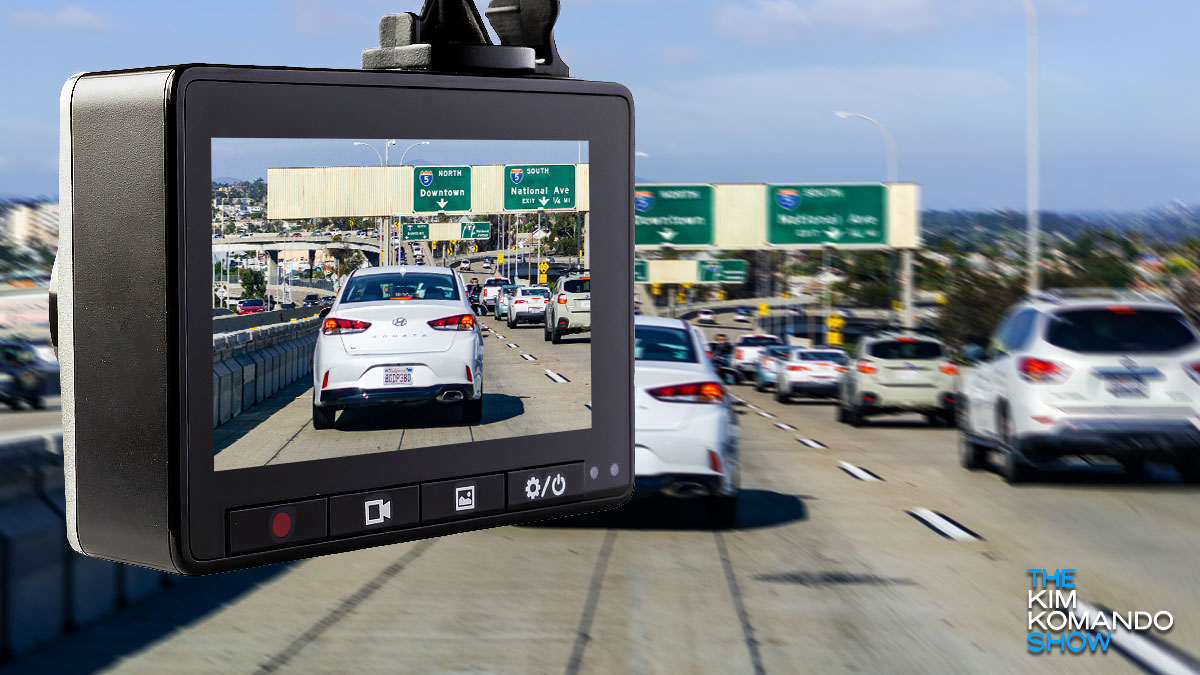There’s a classic theft tactic making the rounds once again. If someone approaches you with an “emergency” and asks to borrow your phone, don’t do it. I’ll explain why.
Taking a summer vacation? Don't make these dumb mistakes

Did you hear about the woman who was scammed out of her $15,000 Carnival cruise? A day before the family was supposed to board, Tiffany found the trip she’d spent a year planning had been canceled … and not by her.
Carnival told her the $12,000 room she’d booked had been reserved — and then refunded — under someone else’s name. Ouch.
How’d it happen?
Tiffany posted her cruise tickets, including her booking reference number, on Facebook. The very same day, a scammer made a brand-new Carnival account using Tiffany’s confirmation number, and then they canceled the booking and cashed out.
Carnival traced the swindler’s IP address to somewhere in British Columbia, but they couldn’t uncover their full identity. No, Tiffany and her fam didn’t make it on the boat.
Summer travel season’s in full swing, and crooks would love to pull one over on you. You’ve worked way too hard this year to let your vacation get ruined by a scumbag. That’s why I’ve pulled together these nine tricky travel traps to avoid:
- Don’t post about your travel plans before you go. It screams, “Rob me!”
- Watch for fake booking sites and bogus trip insurance. Go directly to a company’s official website to make arrangements.
- Don’t tell strangers where you’re staying. It’s fun to make friends on vacation, but even if someone seems trustworthy, you never know.
- Don’t take unofficial rides, even if a car looks like a taxi. Reserve your transportation in advance, use a rideshare app or ask the airport info desk where to find the official taxi service.
- Don’t fall for the “broken” meter. Shady cab drivers will tell you their meter is busted and charge you an insane amount. Check the meter before the ride starts. If your driver tells you it’s broken, ask them to reset it. If they can’t, hop out and get another cab.
- Watch out for money-exchange skimmers. If you need local currency in another country, use an ATM at an official bank, not a tourist area. Use your credit card wherever you can for more protection.
- Avoid public free Wi-Fi. Scammers create fake Wi-Fi hotspots, hacking into whoever jumps on. Always verify the Wi-Fi name with an employee before you connect. Crooks often use names very similar to the official Wi-Fi to trick people.
- Watch your bags — even in the hotel. Scammers will start a scene while you’re checking in while another steals your bags. Always keep an eye on your luggage, and stay calm if someone approaches you.
- No such thing as a “free” photo. If you’re approached by a person in costume or at a famous attraction and they offer to take your photo, it’s probably not free. Photo scammers will quickly snap a pic and then force you to pay for it. If someone forcefully jumps into your picture, don’t pose and don’t snap.
Bonus tip: A friend of mine was in Rome with her daughter. A stranger offered to take their photo. She handed him her $1,500 iPhone, and he ran off with it. Be careful out there!
😂➕ What do travelers like best about Switzerland? Not sure, but the flag’s a big plus.
Best dashcams for 2024

Fourth of July is right around the corner, and we’re in for record-breaking holiday traffic. Some 71 million people are expected to travel over 50 miles during the week — the most on record.
I don’t mean to be a downer, but record-setting travel also means record-setting accidents, crashes and road rage. And being a defensive driver isn’t the only way to protect yourself on the road.
Don't trust ANYONE
⚠️ It can happen anywhere: An Australian IT pro was caught running “evil twin” Wi-Fi attacks on flights and airports. He set up phony Wi-Fi networks to trick victims into logging in, and then he snagged their usernames and passwords for whatever they did. Pro tip: Always ask the flight staff for the real Wi-Fi network name.
1 in 10 executives
Say their company has faced a deepfake attack. This year, one worker joined a deepfake video call with his “teammates” that was so convincing, he wired $25 million to the scammers. Companies going through IPOs, mergers or reorgs are most at risk.
Your smart speaker can detect smoke and carbon monoxide alarms – Here's how

Your Amazon, Google or Apple smart speaker has a lifesaving feature I bet you don’t know about: It can tell you if there’s smoke or carbon monoxide (CO) in your home.
The speaker can’t actually detect smoke or CO, but it can “listen” for devices that do. So, if your smoke or CO alarm goes off and you’re away from home, your smart speaker can ping your phone, saving your property, belongings and precious pets inside.
Watch out for scam ads on social
Scammers are upgrading their tactics. The latest scam uses enticing ads featuring AI art, making everyone think they too can be a content creator.
Major slip-up: A company TikTok, Uber and X hired to verify user identities left admin credentials exposed online for over a year. They process photos of faces and driver’s licenses, a boon for criminals. Yup, a free meal ticket for identity theft. Remember, when you give info to a company, you’re giving it to their vendors, too.
🚨 Don’t chance it: TeamViewer, the go-to remote access tool, was hacked by Russian spies. The company says the breach was limited to its corporate network, but, hey, I’d assume they accessed customer files, too. If you have it, change your password pronto and set up 2FA. Share this one with your favorite IT pro.
“Needless Markup” hacked: Hackers stole info from at least 64,472 Neiman Marcus customers and employees, including names, contact details and birth dates. The data is for sale on the dark web for $150,000.
Web safety alert: Over 100,000 websites, including Hulu, are victims of a security breach. They all use a compromised JavaScript library that could redirect users to scam sites, install malware, and even swipe usernames, passwords and credit card info. Watch out for rogue pop‑ups.
America’s water systems are a cyber target: Systems in Kansas, Texas and Pennsylvania have already been hit by hackers in China, Russia and Iran. Blame outdated tech and poor cybersecurity. No joke, some water systems still use default passwords. This scares me and it’s why I keep extra water on hand.
Chilean gang caught planting cameras
If something feels off, then it probably is. These people are working hard to get your valuables, and I’ll warn you what to watch for.
A dangerous Google Chrome scam: It’s planting malware that starts with a pop-up when you try to open a webpage or document. It’ll then tell you to copy and paste text into Windows PowerShell. No, don’t do this. Time to add a trusted ad blocker to your browser to avoid this scam and the thousands of others that get you the same way.
280 million
Chrome users who have installed shady extensions in the past three years. These extensions included malware and often asked for advanced permissions during installation. On average, dangerous extensions stayed in the Chrome store for over a year before getting the boot. Good job there, Google.
AI Clones on Zoom
What happens when there’s a rogue clone of you running around?
AI is stealing your voice from the internet
It’s easier than ever to copy a real human voice. Just think about all the harm that could cause. Scary stuff, folks. Pro tip: Set all your online accounts to private.
Keep your iPhone locked, even if it's lost!
Smart how-to today: Set up Apple’s Stolen Device Protection setting. This hack only works if you set it up before your iPhone goes missing, so do it now before it’s too late.
Before you buy a house, watch this
Pat Lawlor and his wife were first-time homebuyers, eager and ready to start the process. Things took a turn for the worse when Pat received an email from his “escrow officer” and sent over their down payment. Catch the full interview here. Buyer beware!
What is the Dark Web?
It’s not just hackers and scammers … though, yeah, they are there. Let’s take a closer look.
